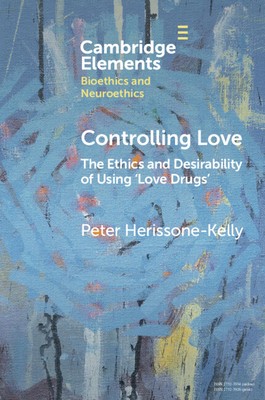
- We will send in 10–14 business days.
- Author: Peter Herissone-Kelly
- Publisher: Cambridge University Press
- ISBN-10: 1009299050
- ISBN-13: 9781009299053
- Format: 15.2 x 22.9 x 0.4 cm, softcover
- Language: English
- SAVE -10% with code: EXTRA
Reviews
Description
Recent research in neurochemistry has shown there to be a number of chemical compounds that are implicated in the patterns of lust, attraction, and attachment that undergird romantic love. For example, there is evidence that the phenomenon of attachment is associated with the action of oxytocin and vasopressin. There is therefore some reason to suppose that patterns of lust, attraction, and attachment could be regulated via manipulation of these substances in the brain: in other words, by their use as 'love drugs'. A growing bioethical literature asks searching questions about this prospect, and especially about the use of such drugs to enhance or reignite attachment in flagging relationships. This Element examines some of the central arguments on the topic, and sounds a note of caution. It urges that there are reasons to think the states of attachment produced or facilitated by the use of such drugs would not be desirable.
EXTRA 10 % discount with code: EXTRA
The promotion ends in 18d.14:38:49
The discount code is valid when purchasing from 10 €. Discounts do not stack.
- Author: Peter Herissone-Kelly
- Publisher: Cambridge University Press
- ISBN-10: 1009299050
- ISBN-13: 9781009299053
- Format: 15.2 x 22.9 x 0.4 cm, softcover
- Language: English English
Recent research in neurochemistry has shown there to be a number of chemical compounds that are implicated in the patterns of lust, attraction, and attachment that undergird romantic love. For example, there is evidence that the phenomenon of attachment is associated with the action of oxytocin and vasopressin. There is therefore some reason to suppose that patterns of lust, attraction, and attachment could be regulated via manipulation of these substances in the brain: in other words, by their use as 'love drugs'. A growing bioethical literature asks searching questions about this prospect, and especially about the use of such drugs to enhance or reignite attachment in flagging relationships. This Element examines some of the central arguments on the topic, and sounds a note of caution. It urges that there are reasons to think the states of attachment produced or facilitated by the use of such drugs would not be desirable.


Reviews